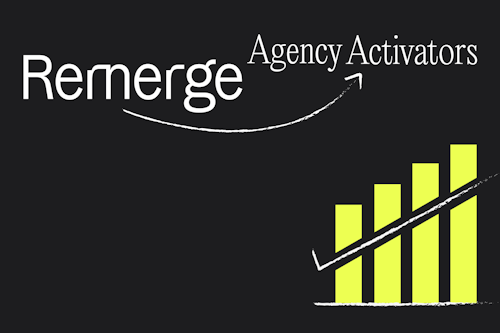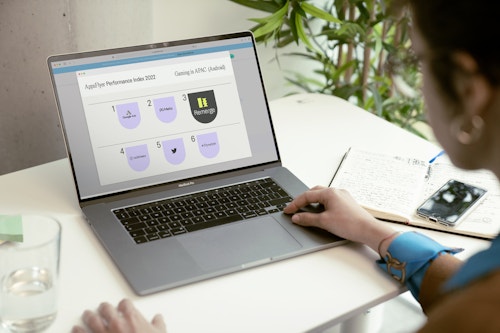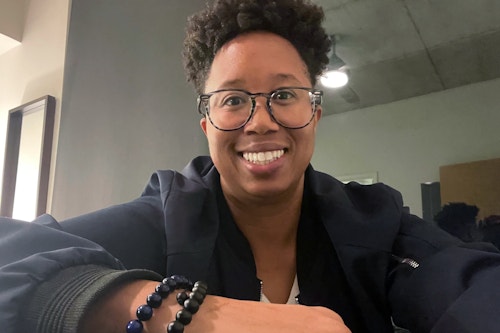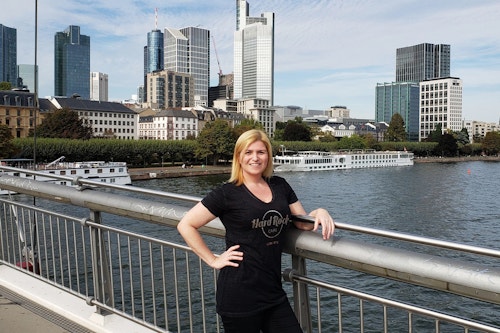Real talk: Ana Sušac on developing her career as a woman in tech
March 19, 2021

We’re celebrating this Women’s History Month by featuring one of Remerge’s Software Engineers, Ana Sušac. Ana has been with Remerge since 2017, having started as the first female member of the tech team and has been part of the growth from eight to twenty nine members. In this interview, Ana talks about her story in tech, one that is of courage, discipline, and passion, but also of joy.
Your journey into tech has been adventurous so far. Tell us more about that experience.
Unlike many of my colleagues, I didn’t start programming at the age of 12. I grew up in Bosnia and Herzegovina in the 90’s and only got internet access at home when I was 17. I wasn’t as tech-savvy then, but I managed to apply online and land a scholarship to Duke University. My plan was to study math. I loved its rational, deterministic nature, and was always good at it, but I had no clear idea what I wanted to do in life.
The math department was the first time I found myself the only woman in the room. Getting my young colleagues to take me seriously was a struggle. I remember proposing a solution in a study group, only to watch them argue for hours before arriving at my suggestion. They were louder, I was 18 and too shy for my own good. This was demoralizing, so I looked for alternatives. Through twists and turns I ended up in the Psychology department studying, instead of rationality, what is it that makes humans irrational.
From day one I was also trying to register for the introductory CompSci course, curious to see what that was all about. The course was highly sought-after, so I only managed to enroll in my final year. Taking it made me at once ecstatic and disappointed. Ecstatic I finally found something that captivated my attention, and disappointed my scholarship was running out, and there was no time to pursue it further.
From then on, my direction slowly but surely drifted towards where I am today. I went on to do a Masters in Neuroscience at FU Berlin. I picked that program over a similar one because it had a programming class. It was basic scientific programming, writing matlab scripts to show slides and collect participant responses - nothing too exciting. Meanwhile, the Computational Neuroscience department at TU Berlin was doing more fun things like using computational modelling to analyze functional brain neuroimaging data, so I joined a lab there for a short internship. Later I learned this is what the tech industry refers to as Data Science.
« I wanted to solve problems faster, have a quicker feedback loop, and keep learning new things, so tech was the obvious choice. »
Living in Berlin introduced me to the industry, and in turn made me reconsider my commitment to academia. I wanted to contribute to the scientific community, but it became clear to me that an adequately rigorous scientific process was unfortunately slow. I wanted to solve problems faster, have a quicker feedback loop, and keep learning new things, so tech was the obvious choice. I took all the online courses I could find, and immersed myself into Berlin’s Meetup community. I spent evenings and weekends at OpenTechSchool, learning the basics of HTML, CSS, JavaScript, Ruby, you name it.
After my focus working on my first website was broken one night by the rising sun, I knew I'd found my passion. The next step was quitting my student job, and looking for someone willing to take a chance on a wanna-be developer with 9 months of community training. Through a stroke of luck, I found Remerge.
You seized the opportunity. What was it like working at Remerge when the team was still small?
I started as a part-time student. I was terrified those first weeks! I thought everyone would realize I knew very little, so I would pretend to understand something, go home and stay up all night learning it, just so I could do it the next day. It took me months to get out of this mindset and understand that it was not just acceptable, but expected of me to not know things.
No one was testing me - all I had to do was ask, and the team was eager to teach me.
We were way smaller back in 2017, altogether around 40 people, most sitting in the same room. The atmosphere was quite relaxed, and the group tight-knit. In a way it was different than today, easier to know every face and less processes to follow, but in a way it was the same. It always felt as it still does, that everyone is important, and that people come first.
How has the journey been so far and what was it like growing into your role today?
When I joined we were eight on the tech team. Our system was already powerful and complex, but it was still easy to keep track of all the changes. This made learning quite straightforward. It also allowed me to get exposed to our whole stack, and find my place on the team.
I’ve always felt supported and encouraged. My colleagues would find time to sit down with me and guide me. They knew how to provide me with the right level of detail I needed to make progress on the task at hand and in general. For this I’m especially grateful to my mentor from day one, and later also my manager, Richard. He always had the exact command I was missing, as well as an encouraging word, and definitely helped shape (and still does) the engineer I grew into. I was also lucky enough to join while Mike was still on the tech team, and had a chance to learn from his example how to work diligently, effectively, and efficiently, while not taking myself too seriously.
Looking back, I think I joined Remerge in the perfect moment to grow with it. Whenever I got comfortable in my role, there would be a new challenge: a new technology we decided to use, a new team structure, a new process, or most recently a new style of work, with remote-first. In tech, we went from eight people using a single kanban board, to now 29 in rotating mini-teams working on shaped-up projects. I’ve had the opportunity to help our product team shape some of the projects, getting to better understand the business side of things. I also served as the tech lead on several mini-teams, expanding my skills into project management.
What do you hope to achieve in the next six months?
This is a very exciting time for us all, given the changes the industry is facing. In R&D we have been busy getting us ready for the post-IDFA world, and I think we’ve done a great job until now. Obviously some things are still unclear, and in the next months we’ll have to keep innovating to stay on top of them.
One thing I can say for sure is that we won’t run out of interesting problems to solve. What we hope to achieve is for Remerge to continue as a thought-leader in the industry, with our scientifically grounded and privacy friendly solution for the identity-less future.
For me personally, the upcoming challenge will be taking on my first direct reports. I am very excited to grow in this direction. I see it as a chance to apply what I have learned throughout my whole journey to help our new members thrive as well.
Any last words or learnings that you’d like to share?
I often read stories about difficulties people from underrepresented groups experience in tech. I truly empathise, and I do my part to make sure that topics of diversity and inclusion are on the table within our team and company.
« I often read stories about difficulties people from underrepresented groups experience in tech. I truly empathise, and I do my part »
I also feel privileged never to have experienced any similar difficulties at Remerge. Despite being the only woman on the tech team for quite a while (but happy to say no longer!), I have never again felt the way I did back at the university where others would easily talk over me. Part of that is due to the fact that since then I have found my voice and learned not to be afraid to speak up (and be wrong sometimes!). Another part is definitely due to working with exceptional, supportive, amazing people I am happy to call my team.





